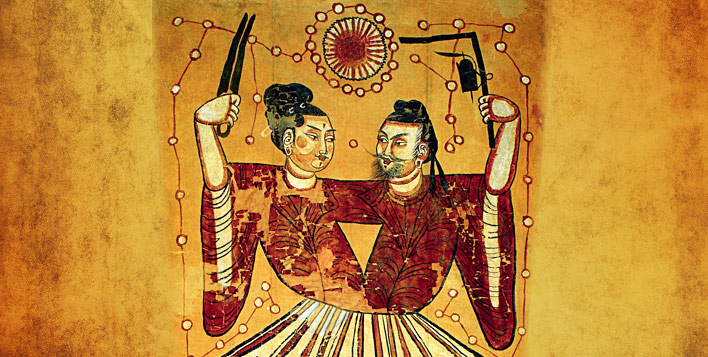
Ancient China
Three Legendary Sovereigns
Three Sage Kings, or Three August Ones, were said to be god-kings or demigods. Because of their superior virtue they lived to a great age and ruled over a long period of peace.
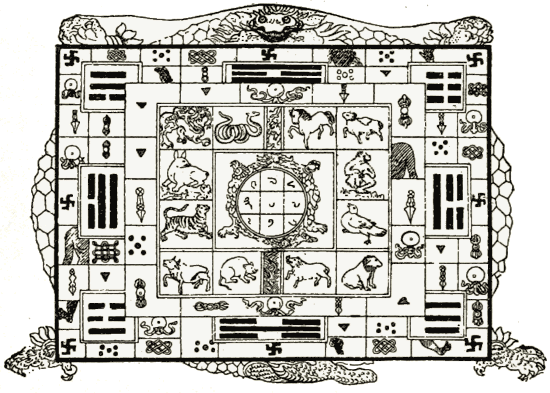
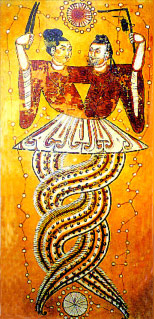
The Sage Kings contributed to the creation of man and animals and introduced important aspects of Chinese culture, such as agriculture, fishing, herbal medicine, music, writing, and the drinking of tea.
Fu Xi (also written Fu His; pronounced “foo shee”) is first in this illustrious group. Han dynasty scholars dated his reign to the middle of the thirtieth century BCE. Today, scholars call him a legendary chieftain. The story goes that Fu Xi taught “the black-haired people” (the proto-Chinese) how to hunt and fish and raise domestic animals.
Nü Wa (sometimes written Nü Ga or Nü Go) is a female protagonist in these fragments of the early stories. Sometimes she is Fu Xi’s sister, sometimes his wife; she was said to have ruled for 11,000 years.
In the enigmatic Han Dynasty tomb paintings, Fu Xi and Nü Wa are shown as human figures from the waist up with intertwined snakes’ tails and a child between them. By this time Nuwa and Fuji are described as the first of the Three August Ones and Five Emperors, and often called the “parents of humankind.”
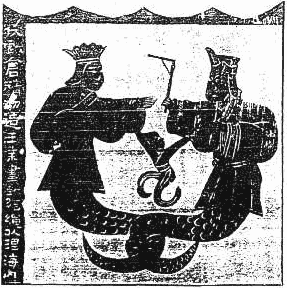
One story makes Nü Wa the creator of humankind. As she wandered the pristine earth still devoid of people, Nü Wa felt lonely, so she mixed earth and water to fashion figures out of mud in her own likeness, and then brought them to life to keep her company.
The best-known story is called “Nü Wa Patches the Sky.” Two gods were fighting across heaven and earth. The defeated god, in anger, struck his head against a mountain and caused one of the pillars holding up the sky to collapse. The sky broke and cataclysms followed on earth: earthquakes, forest fires, floods welling up from the earth, rampages by ferocious animals against the human beings.
Nü Wa melted down various kinds of colored stones in a crucible, and patched the hole in the sky. She killed a giant tortoise and used its legs to prop up the fallen part of the sky. She put an end to the floods ravaging the earth and killed a dragon to overawe the beasts and put an end to their attacks on humans.
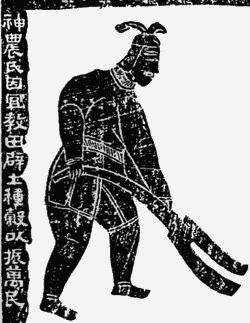
Shen Nong (also written Shen Nung; shen sounds like the English word shun, and the o in nong sounds like oo in “foot”) came after Fu Xi. He is said to have reigned for 45,600 years.
The name Shen Nong translates as “Spirit Farmer.” He was the inventor of agriculture and made the first plow. He founded the first market centers and showed the people how to trade with each other for mutual advantage. He made exhaustive studies of the plant world and discovered the medicinal properties of many herbs; work that was crucial to the development of Traditional Chinese Medicine. In later legends he is the discoverer of tea.
